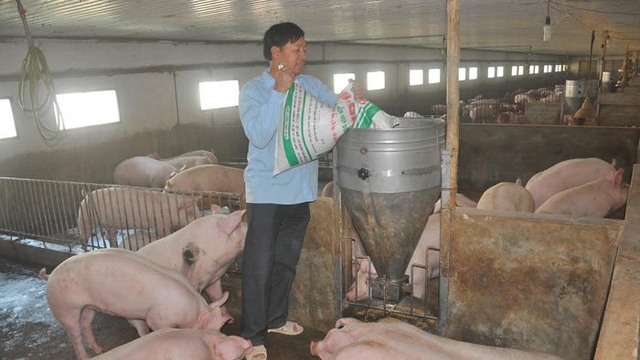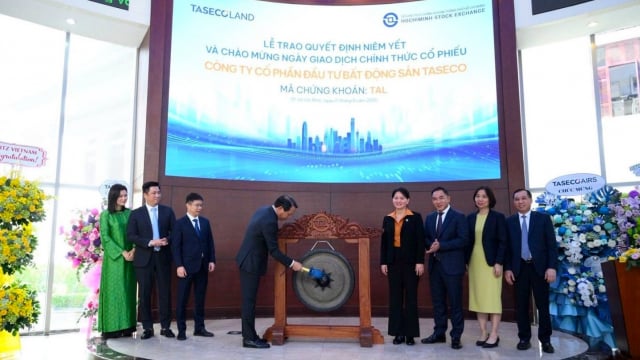Business
It is not easy to grow organic food in Vietnam
While the demand for clean and safe food is increasing, the supply to the market is limited for a number of reasons.

As the economy grows, people's incomes are rising, and the demand for "good" and "safe" organic products has been prioritized in people’ life.
Besides the market system, a number of organic food shops with higher prices appear in many places, especially big cities. Organic products are also displayed in supermarkets.
According to experts, the food market is currently divided into three groups including non-certified conventional food, certified food which is clean and safe and superior products which are organic products.
"Organic and safe vegetables cost twice or triple as much as the price of non-certified vegetables; however, they are usually sold out at nearly 11 am every day. This shows that the consumption habits of people, especially in Hanoi, has changed. They want to use organic vegetables that have the clear origin," said Tran Ngoc Thanh, vice chairman of the Vietnam Organic Agriculture Association.
Currently, many models of production and consumption of organic products have been established throughout the country, such as the Clean Agricultural Production Systems of Vingroup, TH Group, Saigon Union of Trading Co-operatives (Saigon Co.op), Vien Phu Company, Organic Dalat Company, Ba Huan Co., Ltd.
Although the demand for organic products has been increasing, the supply to the market is still very limited.
Thanh said that although organic products are sold at the prices that are two to three times higher than ordinary foodstuffs, they are not enough to supply the market.
Similarly, general manager of SEIKA Mart Nguyen Thuy Duong also said that the distributors prefer clean products but the output of organic products is low, leading to the lack of goods to do business.
Explaining this situation, many experts said that it is not easy to produce organic products. To operate in this area, businesses must invest capital in land, seed, technology, and process monitoring.
The organic products must be grown on clean soil without chemical fertilizer, pesticides, growth stimulants and preservatives. Efforts are also much greater but lower productivity.
Meanwhile, according to experts, the majority of Vietnamese farmers now have short-term thinking, meaning that they are more likely to look at short-term resources, so developing organic products is difficult.
Moreover, it is not easy to find arable land that meets the requirements of organic farming in Vietnam. Currently, agricultural land in Vietnam has been severely poisoned by farmers using chemical fertilizers and pesticides indiscriminately in a long time.
Water and air in many places in Vietnam are severely polluted, leading to some places not meeting the standard for organic production without being re-filtered. This process takes at least three years.
In addition, the process for obtaining organic certification in Vietnam is very strict, costly and time-consuming.
Before issuing the certificate, the certification body will collect 200 samples of soil, water, and vegetables for analysis in accordance with the EU and US standards. If newly certified, this process must be repeated annually. This also partly results in organic food production being not high, not enough supplying for the market. This has partly led to the lack of organic food in the market.
Vietnam struggles to meet food safety standards for exports
LG Innotek secures $200 million IFC loan following revenue drop
LG Innotek Vietnam Hai Phong secured a $200 million IFC loan as revenue slows, aiming to expand camera module production while meeting sustainability targets.
Leading with empathy in Vietnam’s billion-dollar investment flows
For Koen Soenens, Sales and Marketing Director at DEEP C, empathy is a compass that guides major deals, the way a leader builds a team, and the ambition to create a sustainable industrial zone that carries a Vietnamese identity.
Taseco Land’s new logo marks a new growth trajectory
Taseco Land has shifted its listing to HOSE and introduced a new upward-pointing arrow logo - a visual statement of its strategy to raise capital, expand its land bank, and strengthen its standing in Vietnam’s real estate sector
SAP positions Vietnam as key R&D hub with €150 million investment
Located in the heart of Ho Chi Minh City, SAP Labs Vietnam is the second SAP Labs Network hub in Southeast Asia, following Singapore and is one of 20 countries that have SAP Labs globally.
Solar & Storage Live Vietnam returns, leading sustainability and innovation in energy sector
Solar & Storage Live Vietnam event has been running since 2017 and the 2025 edition will be the biggest yet.
New alliance pushes ESG standards for Vietnamese businesses
A new partnership between EY and the Vietnam-Singapore Board Forum (VSBF) is set to strengthen ESG capabilities for Vietnamese businesses, helping shape more sustainable business models.










































